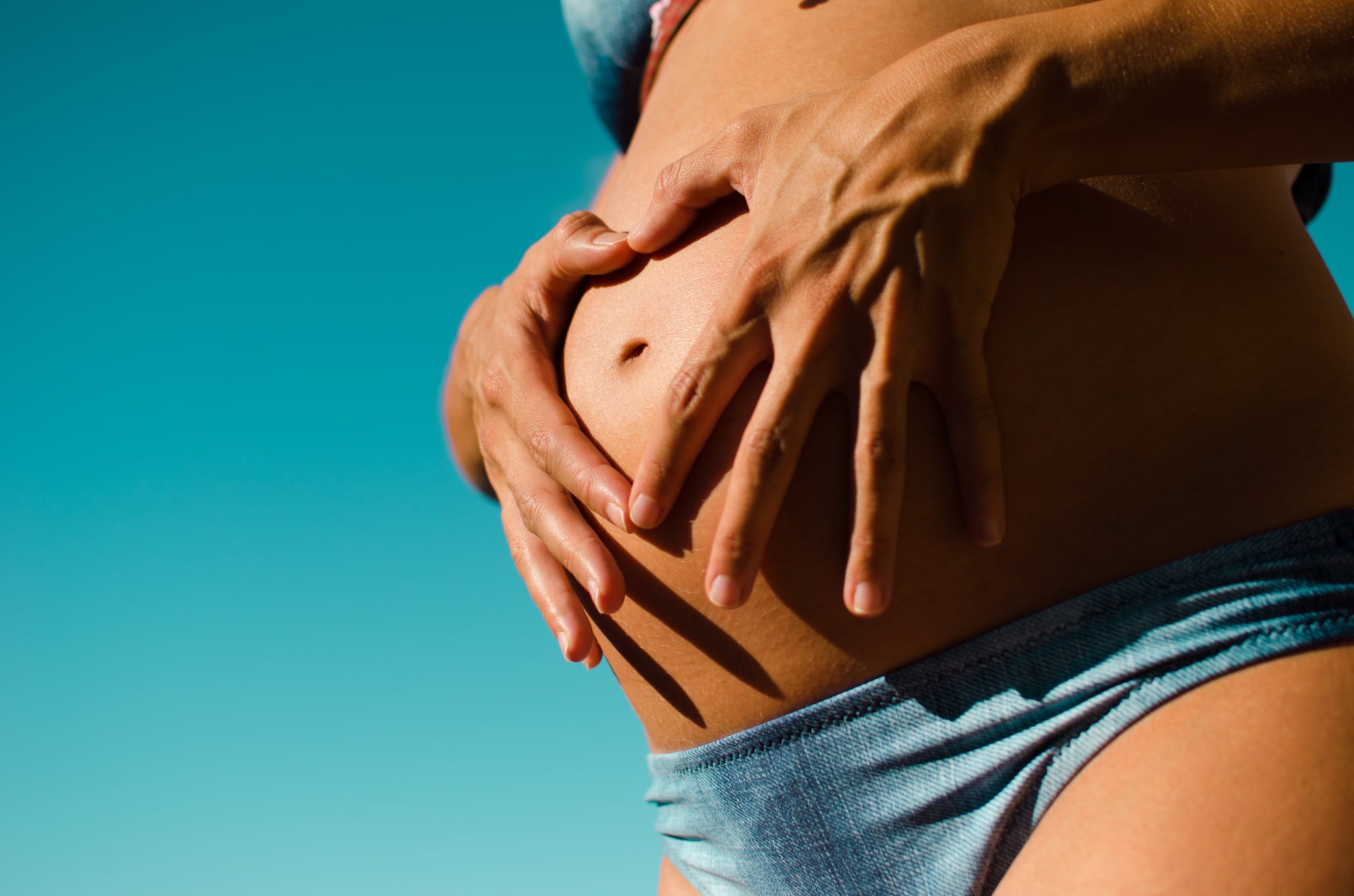Can I Use a Muscle Rub During Pregnancy?
Feel Achy During Pregnancy? Experts Say It's OK to Use a Muscle Rub to Relieve Pain

Typically used for aches and pains like arthritis, backaches, and muscle strains, women often look to muscle rubs and balms for temporary muscle relief during pregnancy. For many women, pregnancy is riddled with musculoskeletal complaints such as sciatica, round ligament pain, and carpal tunnel, Kiarra King, MD, a board-certified ob-gyn in Chicago told POPSUGAR. Achy joints and ligaments can occur as a result of hormonal changes, while some may experience muscle discomfort from the growth of the abdomen. Ahead, experts break down whether it is safe to use muscle rubs during pregnancy and the necessary steps you can take to ensure proper care.
Can I Use a Muscle Rub While Pregnant?
In short, over-the-counter muscle rubs like IcyHot or Tiger Balm are OK to use while pregnant because of their low concentration of ingredients, according to Christine Sterling, MD, FACOG, a board-certified ob-gyn in California. Due to the large volume of different formulations available, Dr. Sterling recommends speaking with your doctor before using topical medications, especially while pregnant.
Similarly, Dr. King explained when your doctor is discussing medication safety in the context of pregnancy, they're often trying to determine how a particular drug will affect a developing fetus. While some medications are perfectly safe to take when you're not pregnant, they could be very harmful to a baby in utero. "Muscle rubs are locally acting, thus there is minimal systemic absorption, so the concern for harm to the fetus is minimal," she said.
Are Muscle Rub Ingredients Toxic?
Most rubs and balms on the market are made of menthol, camphor, and methyl salicylate which work as counterirritants, meaning they cause the cold over hot sensations on the skin to help relieve pain. Since muscle rubs are used on top of the skin, Dr. King stresses there shouldn't be a need for concern. "Again, this type of medication is used topically and there is minimal systemic absorption, so from a maternal and fetal toxicity standpoint, the risk is low," she reiterated. Dr. Sterling noted that while pregnant, women can often experience higher levels of skin sensitivity. So, even though the risk for toxicity is very low, there could be a dermatologic reaction. To see if the skin will tolerate a rub or balm, try doing a test spot application. If there's no red, inflamed itchy areas, feel free to apply the rub over a larger surface area.
How Can I Safely Apply Rubs?
Before using any new over-the-counter medication or creams, always check with your doctor, Dr. King advised. That said, she recommends avoiding using muscle creams on the vulva and vagina, as they could cause areas of heavy irritation. Additionally, to minimize any adverse reactions, wear gloves, wash your hands thoroughly after application, and don't touch your face — most importantly your eyes.
If you'd rather avoid using muscle rubs, Dr. Sterling suggests stretching, physical therapy, magnesium supplementation, maternity support belts, and compression stockings for treating muscle aches and pains. "Never ever assume your pain is 'just a muscle ache' in pregnancy," she told POPSUGAR. "Always inform your ob-gyn when you have pain and work with them to create a treatment plan that works for you."






